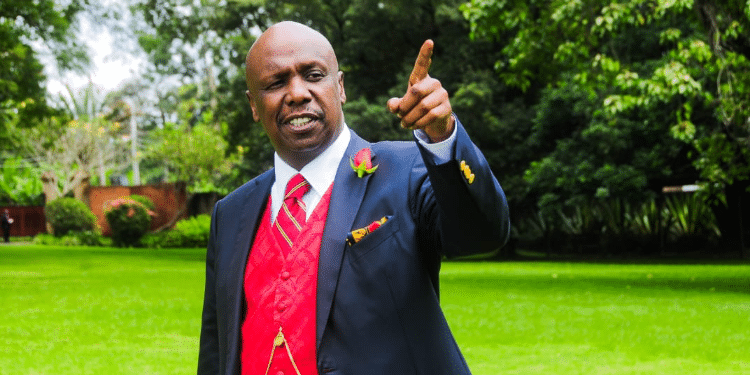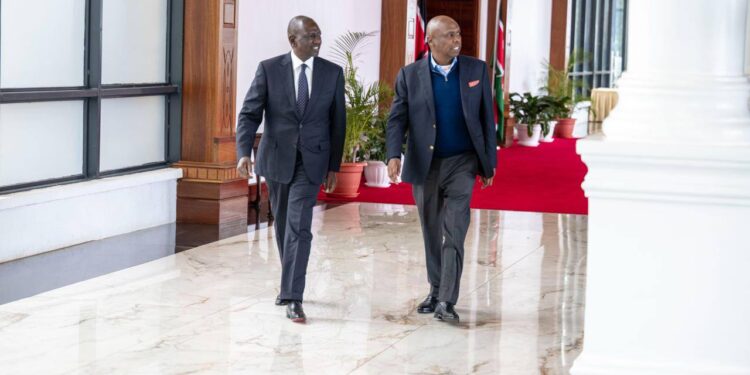
By Newsflash Writer
KANU party leader Gideon Moi is preparing for a major political comeback with plans to contest for the presidency in the 2027 general elections, according to political strategist and Nairobi gubernatorial aspirant Tony Gachoka.
Speaking during an interview on TV47’s Inea Debarl show, Gachoka disclosed that Moi, a long-time ally and childhood friend, will be seeking to unseat President William Ruto. His comments come just days after KANU announced Moi’s candidature for the Baringo senatorial by-election — a move that raised questions about the party’s broader political plan.
Why Moi wants the Baringo Senate seat
Gachoka explained that Moi’s decision to vie for the Baringo Senate seat is a strategic move aimed at rebuilding his grassroots influence before launching a national campaign. “After analysing the political climate, Moi realized he could not sit out at such a critical time,” Gachoka said. “He felt it would be wrong to abandon the people of Baringo and Kenya by appearing detached from current political realities.”
According to Gachoka, Moi’s senatorial bid is designed to reconnect him with the electorate and demonstrate his commitment to leadership at all levels. “Gideon Moi remains one of the most experienced figures in Kenyan politics,” he added. “The Senate race is not about power—it’s about positioning and momentum ahead of 2027.”
KANU’s decision to field Moi in Baringo signals the party’s intention to reassert itself in national politics. The once-dominant independence party has been largely absent from recent coalition talks that have reshaped Kenya’s political landscape.
Read More: Maina Kamanda to Uhuru: Let Gachagua lead Kikuyus
KANU’s isolation and the coalition dilemma
Unlike most major parties, KANU has stayed out of both the government and opposition alliances forming ahead of 2027. The Orange Democratic Movement (ODM), led by Raila Odinga, has signed a cooperation deal with the ruling United Democratic Alliance (UDA). Meanwhile, other leaders—including Rigathi Gachagua of DCP, Kalonzo Musyoka of Wiper, and Eugene Wamalwa of DAP-K—have coalesced under the emerging “United Opposition” front.
Despite this isolation, Gachoka insists that KANU has no plans to join any coalition. “The coalition experiment in Kenya has never worked,” he said. “Raila tried it with the Pentagon, then CORD, NASA, and later Azimio—and he still never won the presidency. KANU believes in building from within.”
Analysts note that Moi’s decision to stay independent could either set him apart as a principled leader or isolate him politically in an era dominated by coalition politics. Still, his legacy as the son of former President Daniel arap Moi continues to carry weight, especially in the Rift Valley.
Read More: Karua declares 2027 presidential bid, vows to serve one term
Political observers believe that Moi’s leadership style—marked by caution, patience, and consensus-building—could appeal to voters seeking stability after years of political turbulence. His challenge, however, will be to mobilize a younger, more restless electorate that has grown skeptical of old-guard politics.
As the political countdown to 2027 begins, Moi’s dual strategy of contesting locally while preparing nationally could test whether Kenya’s oldest political brand still resonates in modern politics. Whether this calculated gamble propels him toward State House or sidelines him further will become clearer in the months ahead.



